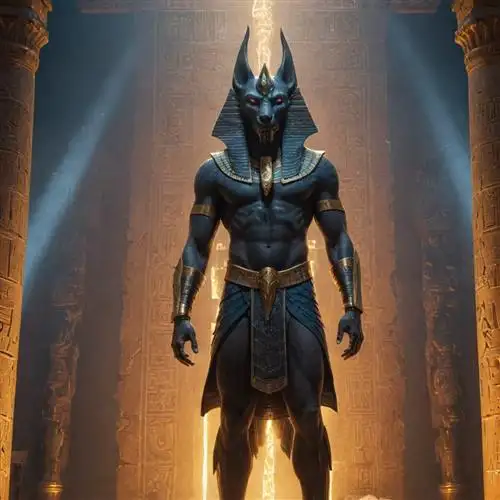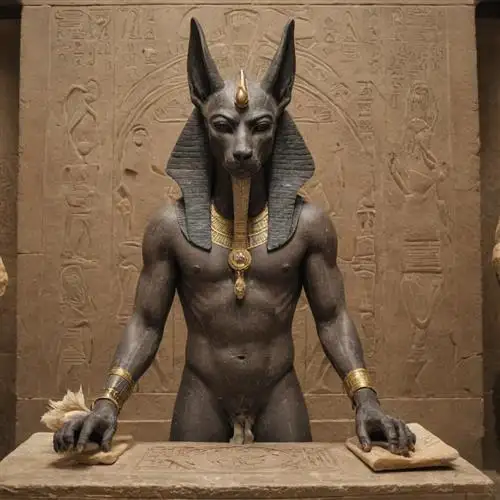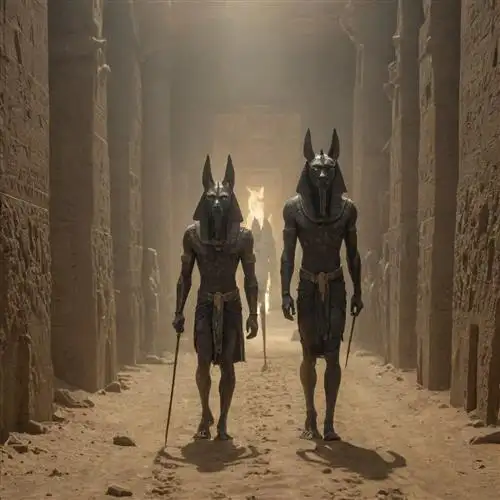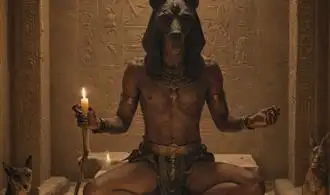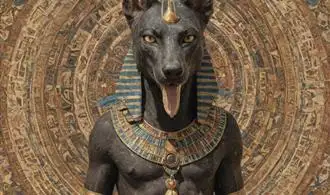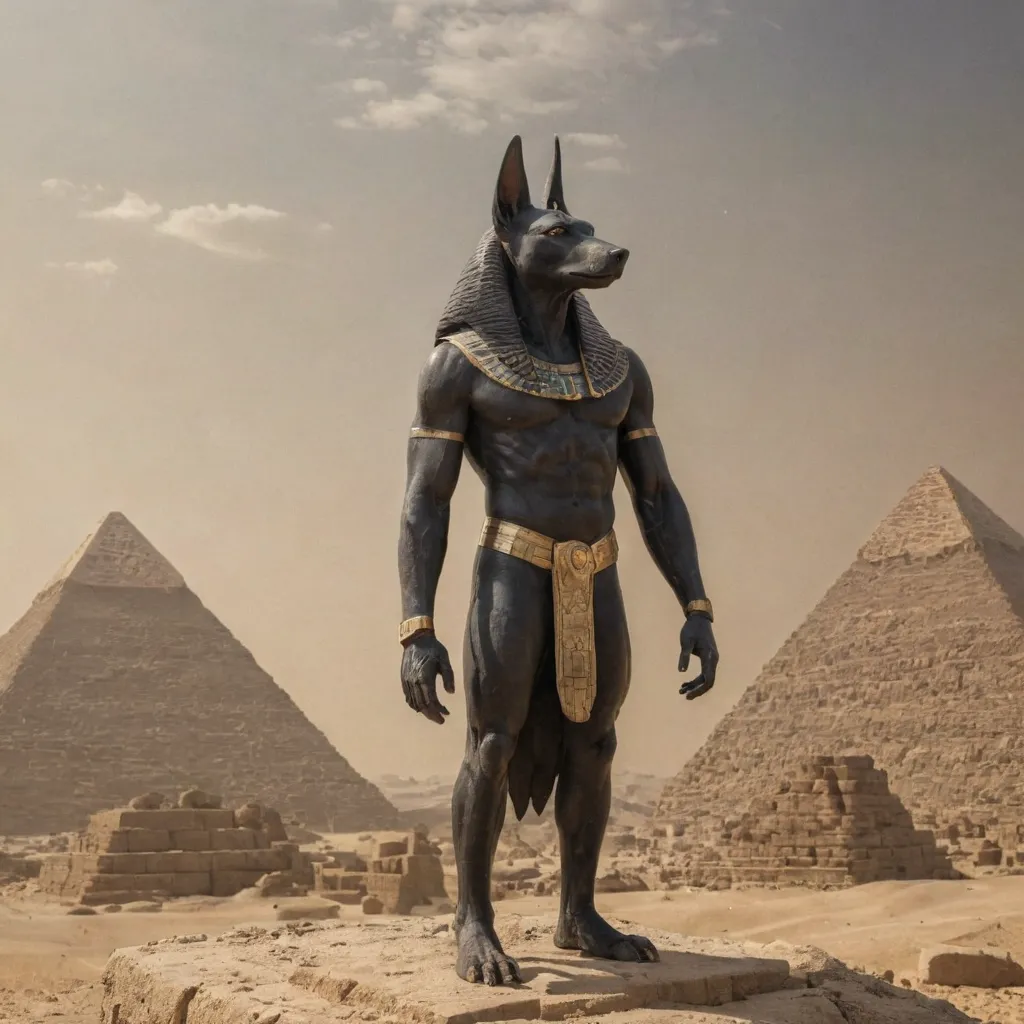
Anubis The Guardian of the Afterlife
Anubis, the enigmatic jackal-headed deity, has captivated the hearts and minds of ancient Egyptian enthusiasts for millennia. As the guardian of the afterlife, Anubis played a crucial role in the complex and captivating beliefs surrounding death and the journey to the next world. Delving into the intricacies of this revered figure, we uncover a wealth of insights that shed light on the profound connection between Anubis and the FOMO (Fear of Missing Out) that often accompanies our lives.
At the core of Anubis' role as the guardian of the afterlife lies his responsibility for the mummification process and the weighing of the heart ceremony. During the mummification process, Anubis was believed to oversee the preservation of the deceased's physical body, ensuring a smooth transition to the afterlife. This meticulous care and attention to detail resonates with the modern-day FOMO, as individuals often feel the need to meticulously curate their lives, both in the physical and digital realms, to ensure they are not missing out on any significant experiences or opportunities.
The weighing of the heart ceremony, a pivotal moment in the Egyptian afterlife, further highlights the connection between Anubis and FOMO. In this ritual, the heart of the deceased was weighed against the feather of truth, representing the individual's moral and ethical conduct during their lifetime. The fear of having one's heart found wanting, and thus being denied access to the afterlife, mirrors the FOMO experienced by individuals who constantly strive to maintain an idealized version of themselves, often at the expense of authenticity and true fulfillment.
Anubis' role as the guide and protector of the deceased on their journey to the afterlife also holds profound significance in the context of FOMO. The ancient Egyptians believed that Anubis would escort the soul of the departed to the underworld, ensuring their safe passage and providing them with the necessary guidance and support. This concept resonates with the modern-day desire for guidance and reassurance in the face of life's uncertainties, as individuals often seek a sense of security and direction amidst the constant bombardment of information and societal pressures.
Weighing of the Heart Ceremony
The "Weighing of the Heart Ceremony" was a pivotal ritual in ancient Egyptian beliefs, centered around the figure of Anubis, the god of the dead. This ceremony played a crucial role in the journey of the deceased, determining their fate in the afterlife. At the heart of this ritual was the belief that the deceased's soul would be judged, with their actions and deeds weighed against the feather of Ma'at, the goddess of truth and justice.
The process began with the deceased individual undergoing a series of purification rites, ensuring their soul was prepared for the final judgment. The body would then be mummified, preserving the physical form as a vessel for the soul's return. Once the mummification was complete, the procession would make its way to the Hall of Judgement, where the Weighing of the Heart Ceremony would take place.
At the center of the ceremony was Anubis, the jackal-headed god responsible for guiding the dead and overseeing the weighing process. Anubis would carefully place the deceased's heart on one side of a scale, while the feather of Ma'at was placed on the other. The heart, which was believed to be the center of the individual's being, would be scrutinized for its purity and the deeds of the person's life.
If the heart balanced perfectly with the feather, it was a sign that the individual had lived a virtuous life, and their soul would be allowed to pass on to the afterlife. However, if the heart proved heavier, it was a sign of an impure soul, and the individual would be condemned to eternal damnation, their soul consumed by the devouring monster Ammit, a creature with the head of a crocodile, the body of a lion, and the hindquarters of a hippopotamus.
Anubis and the Journey to the Underworld
In the rich tapestry of ancient Egyptian mythology, Anubis stands as a pivotal figure, guiding the deceased on their eternal journey to the Underworld. As the god of embalming and the protector of the dead, Anubis played a crucial role in the intricate belief system surrounding the afterlife.
The journey to the Underworld, as envisioned by the ancient Egyptians, was a complex and multifaceted process. Anubis, with his jackal-like head and canine features, was responsible for overseeing the critical stages of this transition. His duties included weighing the heart of the deceased against the feather of truth, a symbolic act that determined the fate of the soul.
If the heart was found to be righteous and without sin, the soul would be granted passage to the eternal realm of the dead, where it would join the ranks of the blessed. However, if the heart was deemed too heavy with misdeeds, the soul would face the devouring jaws of the mythical creature Ammit, effectively condemning it to eternal oblivion.
Anubis' involvement in this process was not limited to the judgment of the soul. He was also responsible for the mummification of the deceased, a sacred practice that ensured the preservation of the physical body. By carefully embalming the remains, Anubis helped to prepare the individual for their journey to the Underworld, where they would reunite with their spirit and continue their existence in the afterlife.
The importance of Anubis in the Egyptian pantheon cannot be overstated. As the guardian of the dead and the gatekeeper to the Underworld, he held a unique and revered position in the complex system of beliefs that shaped the ancient Egyptian worldview. His presence and influence were woven into the very fabric of the culture, serving as a powerful symbol of the cyclical nature of life and death.
The Enduring Legacy of Anubis
Anubis, the ancient Egyptian god of the dead, has commanded reverence and fascination for millennia. As the guardian of the afterlife, this jackal-headed deity played a pivotal role in the complex and captivating beliefs surrounding death and the journey into the hereafter. Unraveling the depth and significance of Anubis' legacy provides remarkable insights into the rich tapestry of ancient Egyptian culture and the enduring human desire to comprehend the mysteries of mortality.
At the core of Anubis' enduring legacy is his role as the embalmer and protector of the dead. In the intricate rituals of mummification, Anubis oversaw the process of preserving the physical body, ensuring the deceased's successful transition into the afterlife. This sacred duty granted Anubis a position of utmost importance, as the well-being and safe passage of the soul into the realm of the dead depended on his careful ministrations.
Beyond his role in the funerary rites, Anubis also served as the psychopomp, guiding the souls of the departed to the Hall of Judgement. Here, the heart of the deceased was weighed against the feather of truth, determining the individual's worthiness to enter the eternal paradise of the afterlife. Anubis' presence in this pivotal moment of judgement underscores the profound significance he held in the ancient Egyptian conception of the afterlife.
The enduring legacy of Anubis can also be seen in the rich symbolism and iconography that have persisted throughout the ages. The jackal-headed figure, with its striking black hue and piercing gaze, has become an instantly recognizable symbol of death, protection, and the mysteries of the beyond. This powerful visual representation has captivated the human imagination, inspiring artists, writers, and scholars to delve deeper into the complexities of Anubis' role and influence.
Moreover, the reverence for Anubis has transcended the boundaries of ancient Egypt, with his cult and worship spreading to other ancient civilizations, such as Greece and Rome. This diffusion of Anubis' legacy speaks to the universal human desire to comprehend the unknown and find solace in the face of mortality.

